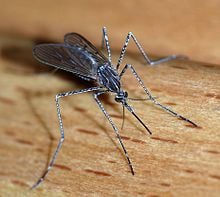The following blog post was written by guest blogger Claire Seigworth. Claire graduated with a B.A. in International Relations and a minor in Spanish Literature from Marquette University. She has traveled to many Latin American countries, studied in Santiago, Chile and worked in Panama for Global Brigades.
Breakthrough in DEET
One of the best defenses against mosquito bites is mosquito repellent and its key ingredient DEET. DEET is a chemical created by United States Army in 1946 designed to repel mosquitoes and ticks which are major carriers of diseases such as Lyme disease, West Nile Virus, dengue fever, and malaria.[1] Despite the fact that DEET has been used for over fifty years, scientists did not understand what exactly made it work well against mosquitoes until a recent breakthrough.
Scientists in California genetically modified fruit flies in order to study the effect DEET has on the insects’ receptors. Although the experiment uses fruit flies instead of mosquitoes, the fruit flies’ nerves are similar.[2] In order to identify what part of the insect reacted to DEET, the fruit flies were genetically altered to have the nerves which sense it to glow green.[3] This key discovery will allow scientist to experiment to find other compounds which stimulate the same nerves and repel mosquitoes and ticks.
By finding plant-based chemicals that repel insects, the results of this experiment go beyond the superficial. Plums, oranges, and jasmine were shown to work similarly to DEET.[4] While they smell nicer than DEET, they also prove three other benefits. These compounds are cheaper, edible, and they do not destroy plastic, unlike DEET.[5]
The findings of this study also go beyond helping people in the developing world preventing insect-born disease. The specific nerve receptor identified in this experiment is found in other pests that damage or destroy crops, but not in honey bees which are crucial to pollinating crops.[6] If naturally occurring compounds can be used instead of pesticides, it could be revolutionary for agriculture especially in developing countries. Given all the potential from the results of this study, the future for disease prevention in human, animals, and plants seems bright.




